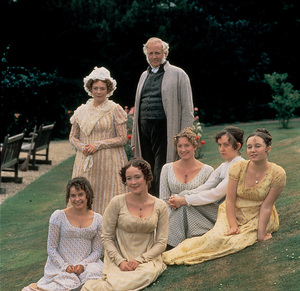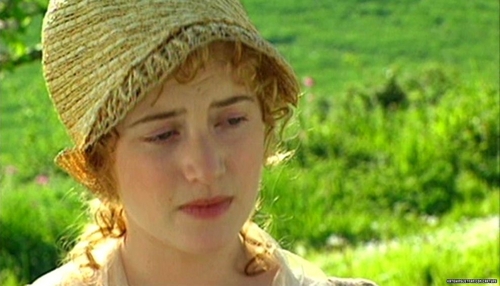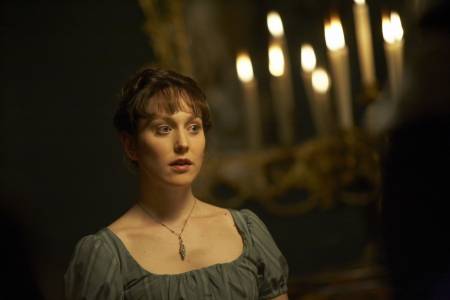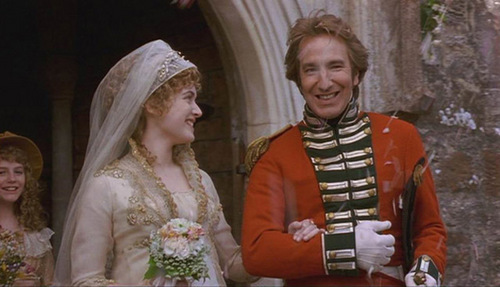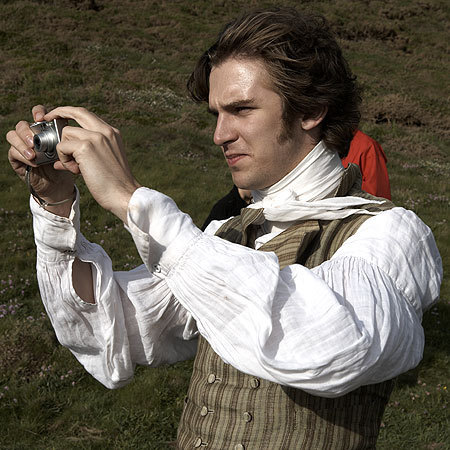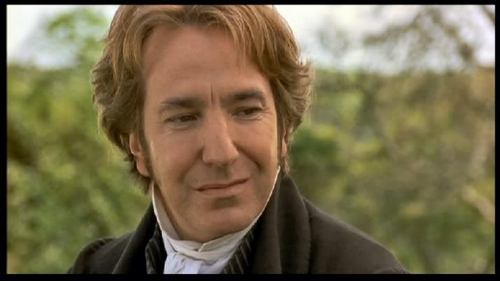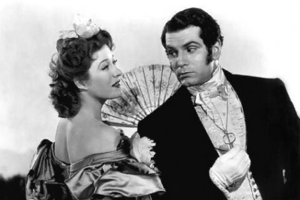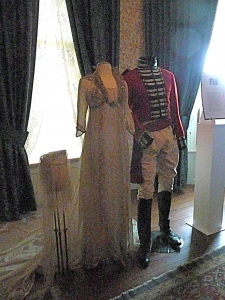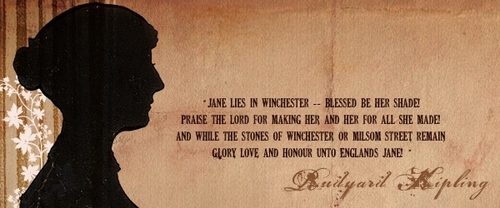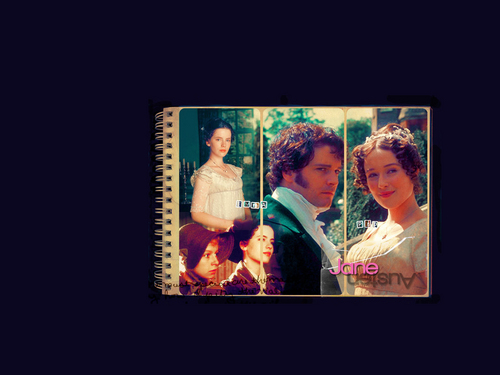SOCIAL CLASS AND THE BENNET FAMILY IN "PRIDE AND PREJUDICE"
Considering how long I have been a người hâm mộ of Jane Austen’s 1813 novel, "PRIDE AND PREJUDICE" and its numerous ti vi and movie adaptations, I am surprised that I have never considered something about its heroine, Elizabeth Bennet, and her family. Ever since I have been đọc numerous các bài viết about the novel and its adaptations, I have noticed that many have labeled the Bennet family as members of the middle-class hoặc the upper middle-class in Regency England. And it finally occurred to me that many of these những người hâm mộ were in error.
I can see the doubt rising in the eyes of those đọc this article. The Bennets were not middle-class hoặc upper middle-class? How can that be? After all, Austen’s novel made it clear that Fitzwilliam Darcy had married beneath him when Elizabeth Bennet became his wife. But if one knew the truth about social classes in Great Britain around that time, one would understand that Mr. Darcy actually married a woman from his own class. Elizabeth, her father and her sisters were members of the landed gentry. Members of Regency England’s upper class.
It is quite apparent that Mr. Darcy was a member of the upper class. He was the owner of a vast estate in Derbyshire called Pemberly. His estate earned him £10,000 pounds per year. The Darcy family had been members of the landed gentry for generations. And his mother, Lady Anne Darcy (formerly Anne Fitzwilliam) came from an aristocratic family. In other words, his maternal grandfather was a peer. But what many những người hâm mộ of Austen’s novel failed to realize that aside from her mother’s family connections, Elizabeth also came from the landed gentry.
Landed gentry is a traditional British social class consisting of "gentlemen" in the original sense. In other words, those who owned land in the form of country estates to such an extent that they were not required to work except in an administrative capacity on their own lands. The estates were often, but not always, made up of tenanted farms, in which the gentleman could live entirely off rent income. The landed gentry were among the untitled members of the upper class, not the middle class.
Mr. Bennet, Elizabeth’s father, was an English gentleman who owned the estate, Longbourn. His estate earned him at least £2,000 pounds per year. Many of the novel’s những người hâm mộ tend to assume that because his estate earned this small amount, he was a landowner that happened to be a part of the middle class. What những người hâm mộ have failed to remember is that ”PRIDE AND PREJUDICE” was written and set either during the late 18th century hoặc the early 19th century. Social status was determined bởi family connections and on a smaller scale, how one earned money. If Mr. Bennet was really a member of the middle class in Regency England, he would be a tenant farmer (one who rented land from landowners) hoặc a yeoman farmer (one who owns land, but has to work the fields himself). Since Mr. Bennet was neither, he was a member of the upper class.
However, Mr. Bennet did marry beneath him. He married a young woman, whose father was an attorney in Meryton. Her brother, Mr. Gardiner was a businessman (or in trade); and her sister, Mrs. Phillips, was married to another attorney. In other words, Mrs. Bennet and her siblings originally came from the middle class. Mr. Darcy and the Bingleys (sans Charles) had been expressing contempt at Mrs. Bennet’s social origins, not Mr. Bennet’s. But Elizabeth and her sisters were not African-American slaves from the Old South. Meaning, they did not inherit their social status from their mother. They inherited their status from their landowning father, also making them members of the landed gentry . . . and the upper class. And as it turned out, Mr. Bennet was not the only member of his immediate family who married someone from what was considered a socially inferior class.
Austen hinted in ”PRIDE AND PREJUDICE” that the Bingley family’s wealth originated in trade. She also hinted that Charles Bingley’s father had intended to purchase an estate for the family before he died, but failed to do so. Which led to Bingley leasing the Hertfordshire estate, Netherfield, around the beginning of the novel. In other words, Bingley was NOT a landowner. Bingley earned at least £4,000 hoặc £5,000 pounds per năm from his businesses. But since he did not own an estate and his wealth came from “trade”, he and his sisters were not members of the upper class. Like Mrs. Bennet and her siblings, they were members of the middle class. No amount of money hoặc education would change their status, unless Bingley joined the landed gentry bởi purchasing an estate . . . and severing all financial ties with the business that had made his family wealthy, in order to cleanse the "taint of trade". It is ironic that Bingley’s sisters spent most of the novel making snide remarks about Mrs. Bennet’s middle class connections, when their own family came from the same class via trade. Even thêm ironic is the fact that Jane Bennet followed her father’s example bởi marrying a man who was socially beneath her.
Looking back on Mr. Darcy’s first marriage proposal, I can see why Elizabeth would feel insulted bởi his words and attitude. Not only did he personally insult her, but made certain các bình luận about her family connections being inferior to hers that now strike me as ironic. Darcy considered Elizabeth inferior to himself, due to her mother’s middle class origins. Yet, he failed to consider that Elizabeth was the daughter of a gentleman and the landed gentry. thêm importantly, he failed to consider that his closest friend came from “trade”, making their origins the same as Mrs. Bennet. Not only do I find this ironic, but also hypocritical. And what I find even thêm interesting is that because of the attitudes of Darcy and Bingley’s sisters, many những người hâm mộ of ”PRIDE AND PREJUDICE” seemed to believe that the Bennets were members of Regency England’s middle class, instead of the upper class.
Considering how long I have been a người hâm mộ of Jane Austen’s 1813 novel, "PRIDE AND PREJUDICE" and its numerous ti vi and movie adaptations, I am surprised that I have never considered something about its heroine, Elizabeth Bennet, and her family. Ever since I have been đọc numerous các bài viết about the novel and its adaptations, I have noticed that many have labeled the Bennet family as members of the middle-class hoặc the upper middle-class in Regency England. And it finally occurred to me that many of these những người hâm mộ were in error.
I can see the doubt rising in the eyes of those đọc this article. The Bennets were not middle-class hoặc upper middle-class? How can that be? After all, Austen’s novel made it clear that Fitzwilliam Darcy had married beneath him when Elizabeth Bennet became his wife. But if one knew the truth about social classes in Great Britain around that time, one would understand that Mr. Darcy actually married a woman from his own class. Elizabeth, her father and her sisters were members of the landed gentry. Members of Regency England’s upper class.
It is quite apparent that Mr. Darcy was a member of the upper class. He was the owner of a vast estate in Derbyshire called Pemberly. His estate earned him £10,000 pounds per year. The Darcy family had been members of the landed gentry for generations. And his mother, Lady Anne Darcy (formerly Anne Fitzwilliam) came from an aristocratic family. In other words, his maternal grandfather was a peer. But what many những người hâm mộ of Austen’s novel failed to realize that aside from her mother’s family connections, Elizabeth also came from the landed gentry.
Landed gentry is a traditional British social class consisting of "gentlemen" in the original sense. In other words, those who owned land in the form of country estates to such an extent that they were not required to work except in an administrative capacity on their own lands. The estates were often, but not always, made up of tenanted farms, in which the gentleman could live entirely off rent income. The landed gentry were among the untitled members of the upper class, not the middle class.
Mr. Bennet, Elizabeth’s father, was an English gentleman who owned the estate, Longbourn. His estate earned him at least £2,000 pounds per year. Many of the novel’s những người hâm mộ tend to assume that because his estate earned this small amount, he was a landowner that happened to be a part of the middle class. What những người hâm mộ have failed to remember is that ”PRIDE AND PREJUDICE” was written and set either during the late 18th century hoặc the early 19th century. Social status was determined bởi family connections and on a smaller scale, how one earned money. If Mr. Bennet was really a member of the middle class in Regency England, he would be a tenant farmer (one who rented land from landowners) hoặc a yeoman farmer (one who owns land, but has to work the fields himself). Since Mr. Bennet was neither, he was a member of the upper class.
However, Mr. Bennet did marry beneath him. He married a young woman, whose father was an attorney in Meryton. Her brother, Mr. Gardiner was a businessman (or in trade); and her sister, Mrs. Phillips, was married to another attorney. In other words, Mrs. Bennet and her siblings originally came from the middle class. Mr. Darcy and the Bingleys (sans Charles) had been expressing contempt at Mrs. Bennet’s social origins, not Mr. Bennet’s. But Elizabeth and her sisters were not African-American slaves from the Old South. Meaning, they did not inherit their social status from their mother. They inherited their status from their landowning father, also making them members of the landed gentry . . . and the upper class. And as it turned out, Mr. Bennet was not the only member of his immediate family who married someone from what was considered a socially inferior class.
Austen hinted in ”PRIDE AND PREJUDICE” that the Bingley family’s wealth originated in trade. She also hinted that Charles Bingley’s father had intended to purchase an estate for the family before he died, but failed to do so. Which led to Bingley leasing the Hertfordshire estate, Netherfield, around the beginning of the novel. In other words, Bingley was NOT a landowner. Bingley earned at least £4,000 hoặc £5,000 pounds per năm from his businesses. But since he did not own an estate and his wealth came from “trade”, he and his sisters were not members of the upper class. Like Mrs. Bennet and her siblings, they were members of the middle class. No amount of money hoặc education would change their status, unless Bingley joined the landed gentry bởi purchasing an estate . . . and severing all financial ties with the business that had made his family wealthy, in order to cleanse the "taint of trade". It is ironic that Bingley’s sisters spent most of the novel making snide remarks about Mrs. Bennet’s middle class connections, when their own family came from the same class via trade. Even thêm ironic is the fact that Jane Bennet followed her father’s example bởi marrying a man who was socially beneath her.
Looking back on Mr. Darcy’s first marriage proposal, I can see why Elizabeth would feel insulted bởi his words and attitude. Not only did he personally insult her, but made certain các bình luận about her family connections being inferior to hers that now strike me as ironic. Darcy considered Elizabeth inferior to himself, due to her mother’s middle class origins. Yet, he failed to consider that Elizabeth was the daughter of a gentleman and the landed gentry. thêm importantly, he failed to consider that his closest friend came from “trade”, making their origins the same as Mrs. Bennet. Not only do I find this ironic, but also hypocritical. And what I find even thêm interesting is that because of the attitudes of Darcy and Bingley’s sisters, many những người hâm mộ of ”PRIDE AND PREJUDICE” seemed to believe that the Bennets were members of Regency England’s middle class, instead of the upper class.


